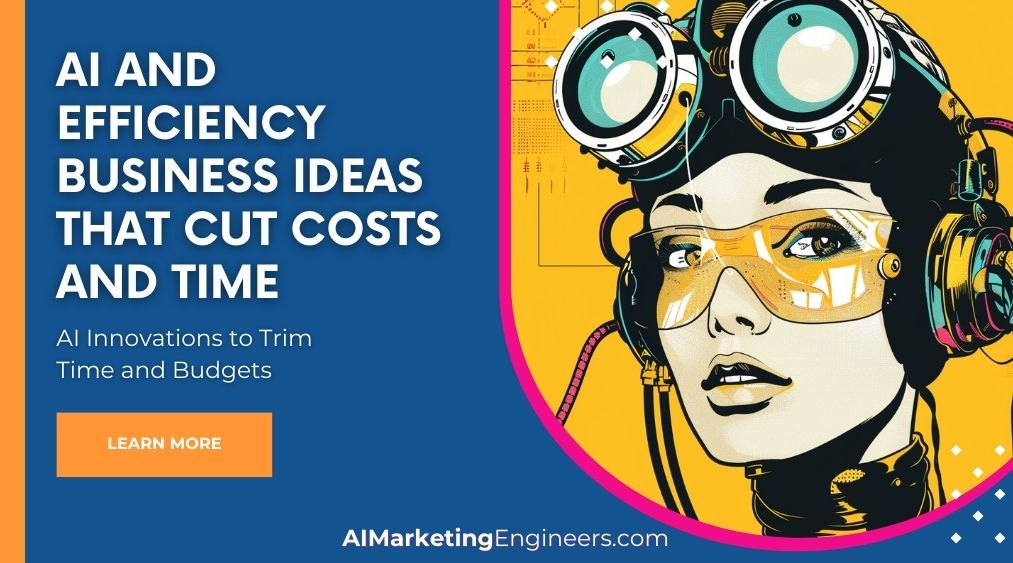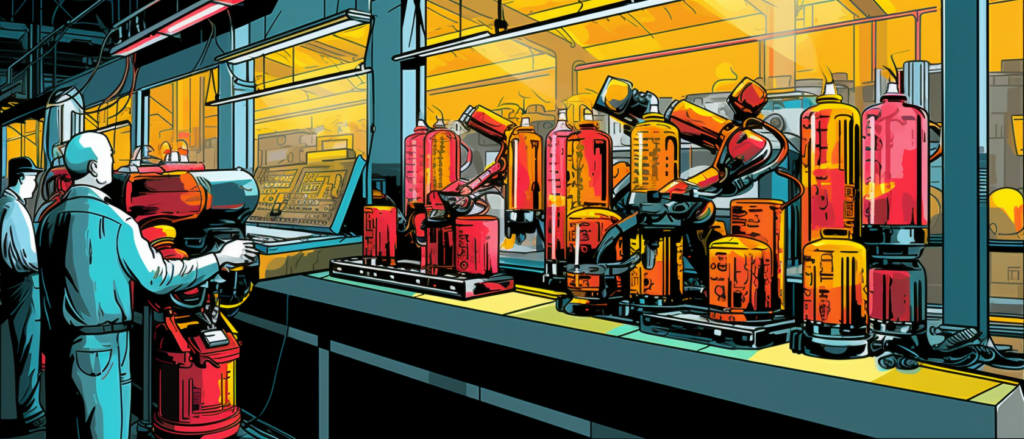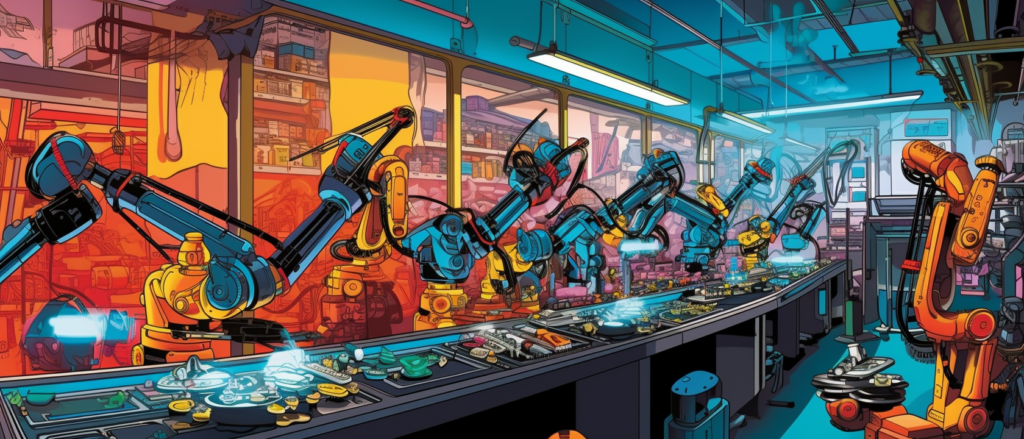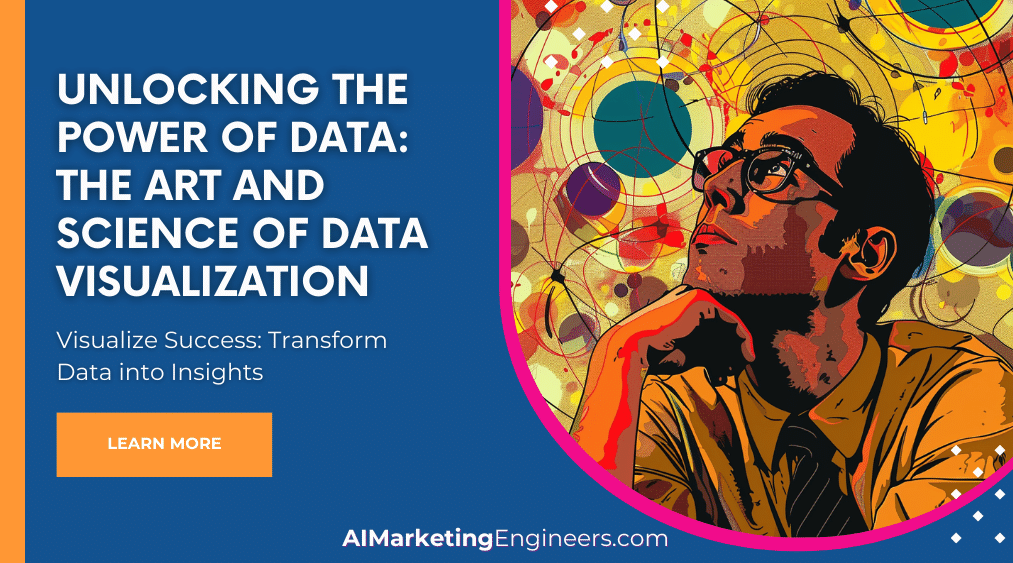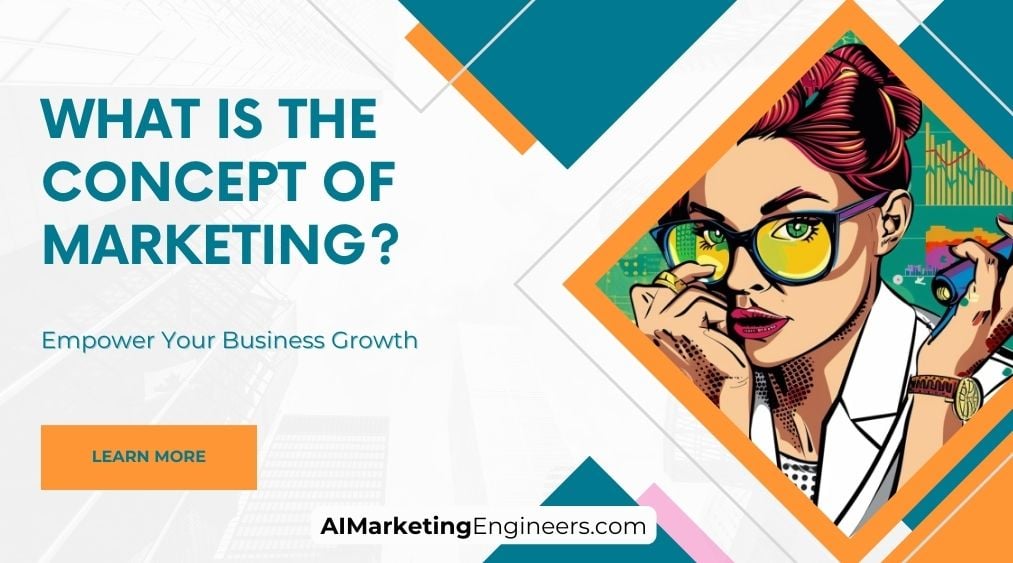Key Takeaways
✅ Streamlined Operations: Embracing AI can take your business operations from slow and risky to fast and sharp. Automating routine tasks isn't just about speed; it reduces costly mistakes and frees up your team for bigger things. Did you know companies using AI have seen their productivity leap by up to 40%?
✅ Personalization and Customer Experience: Ever wonder why some businesses just 'get' you? AI is their secret. It sifts through data to tailor visitors' experiences, making customers feel like VIPs every time. Happy customers are repeat customers, and that's a direct line to efficiency, isn't it?
✅ Predictive Maintenance and Resource Optimization: Waiting for things to break is old news. AI predicts the future, alerting you to fix things before they cause havoc. It's not magic; it's smart—and it can curb downtime by up to 50%. Can you imagine the edge it gives you in efficiency and cost savings?
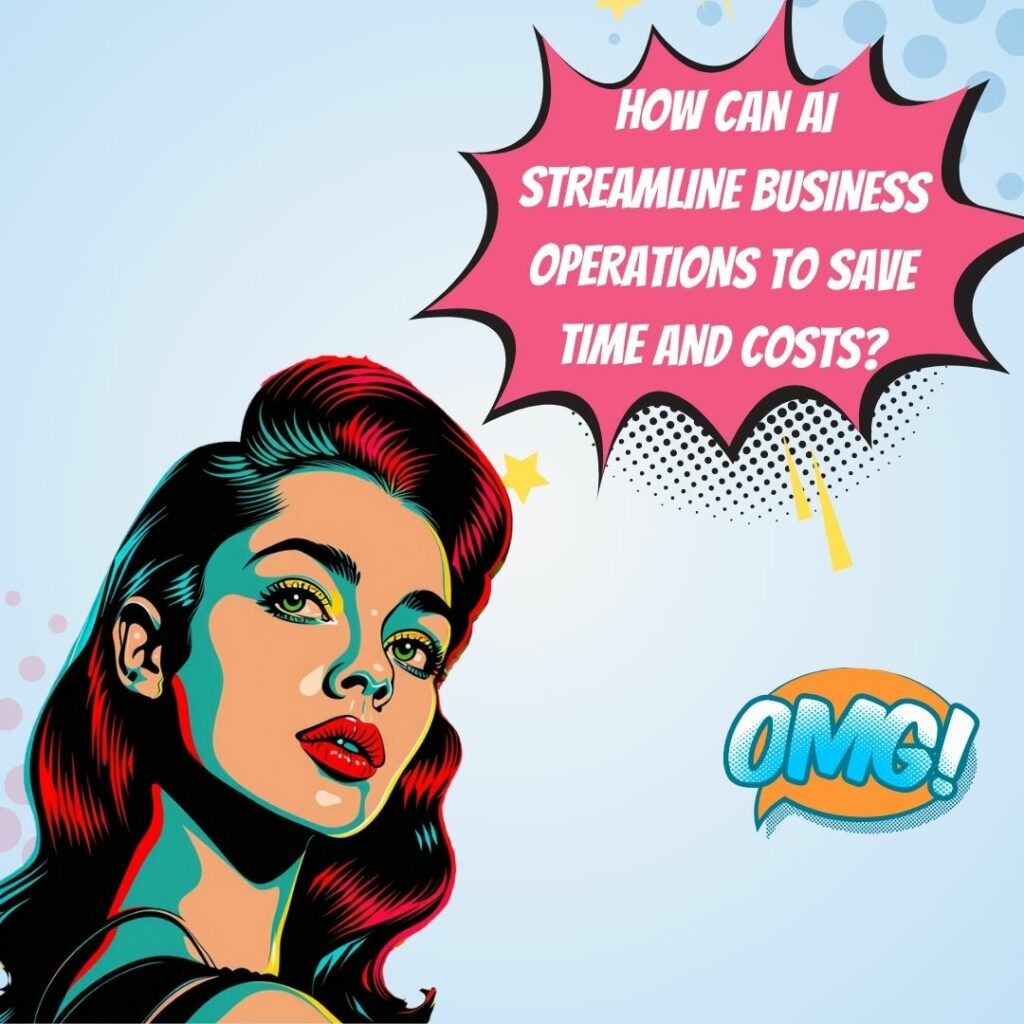
Introduction
Struggling to keep up with the relentless pace of business today? AI and Efficiency are more than buzzwords—they're the dynamite duo that can skyrocket your business into a realm of streamlined success. But how exactly can they cut costs and time in your day-to-day grind?
Let's dive into Automation of Routine Tasks. Think about all the hours you could reclaim if mundane tasks like crunching numbers, sorting emails, or scheduling were handled by intelligent robots. Revolutionary, right? Next up, let's chat about Customer Service. We're talking slick, helpful chatbots and virtual assistants that never sleep. Could AI be your ultimate tool for keeping customers grinning and your support team focused on the trickier stuff?
Then there's Predictive Analytics and Forecasting. Imagine knowing what your customers will want before even they do. Or having a crystal-clear view of your inventory needs. That's the promise of AI—forecasting so sharp, you could shave with it. And we can't overlook Hiring and Recruitment. AI's ability to pick out the best candidates from a sea of resumes can mean the difference between hiring a superstar and a dud. Quick, effective, no-nonsense hiring—now that's efficiency.
Top Statistics
| Statistic | Insight |
|---|---|
| AI Strategic Priority: 82% of business leaders believe that AI is a strategic priority. (Source: Deloitte) | This shows the high level of confidence leaders have in AI's potential to reshape their business strategies. |
| Reduction in Operating Costs: AI can potentially reduce operating costs by up to 30%. (Source: Accenture) | Cost reduction is a sweet spot for businesses, making this aspect of AI exceptionally alluring. |
| Customer Experience: 79% of businesses see AI as a way to enhance customer experience. (Source: McKinsey) | Happy customers can mean loyal customers, which is why many companies are eagerly looking at AI to up their game. |
| Global Economic Impact: AI could add up to $15.7 trillion to the global economy by 2030. (Source: PwC) | When you read numbers like that, can you imagine the sheer scale of transformation AI is ushering in? |
Automation of Routine Tasks
Have you ever found yourself buried under a pile of paperwork, thinking there's got to be a better way? Well, AI is that better way. It swoops in to handle those repetitive, time-consuming tasks we all dread. This isn't just about data entry – it extends to ordering inventory, scheduling appointments, and even managing email inboxes. Imagine software that learns from your actions, takes over the mundane stuff, and gets it right every time. It cuts down on the human error too, making businesses run like well-oiled machines. Companies like Zapier and UiPath are already helping businesses save precious hours with automation tools that seem straight out of a sci-fi novel.
Improved Customer Service
Now, let's talk about those long hold times when you call a company, only to be greeted by a maze of 'Press 1 for this, Press 2 for that'. Enter AI-enhanced customer service. AI, like chatbots or virtual assistants, is transforming how businesses interact with customers. These clever bots are quick to respond, never have a bad day, and are learning to handle complex queries with a level of finesse that's impressively human. This isn't just making customers happier (and we all know a happy customer is a repeat customer), it's also freeing up human agents to tackle more challenging problems. Giants like Amazon and Google are leading the way, showing how this tech can mean the end of the dreaded 'your call is important to us' holding loop.
Predictive Analytics and Forecasting
Imagine having a crystal ball that could predict the future of your business. That's essentially what predictive analytics and AI forecasting tools are. These smart systems analyze past and current data to foretell future trends, consumer behaviors, and even potential hiccups in supply chains. From determining the right amount of stock for the upcoming season to adjusting services based on weather patterns, AI is literally guiding companies into the future. It paves the way for more informed decisions, ensures resources are used efficiently, and keeps businesses one step ahead of the market curve.
Streamlined Hiring and Recruitment
Recruiting the right person for the job is like finding a needle in a haystack. AI is revolutionizing the hiring process by automating resume reviews and spotting the best candidates for a position. It means no more sifting through piles of resumes; AI can speed-read hundreds in minutes, flagging the prospects with the skills and experience you need. Some platforms even help conduct preliminary interviews, using language processing to gauge candidates' responses. This isn't about replacing human intuition but augmenting it – making sure hiring managers get to meet the cream of the crop.
Enhanced Cybersecurity
In a world where a data breach can spell disaster, cybersecurity is the fortress every business needs. AI is the smart guard at the gates, constantly learning and adapting to new threats. It can spot suspicious activity that a human might miss and respond in real-time to prevent attacks. Traditional security systems may fail to keep up with the sophistication of modern cyber threats, but AI thrives on them, often predicting and neutralizing risks before they become real problems. This proactive defense can save businesses untold amounts of money and safeguard their hard-earned reputation.
As businesses continue to navigate a world where 'time is money', embracing the transformative power of AI isn't just wise, it's essential. Cutting costs and boosting efficiency are goals as old as commerce itself, but the solutions—thanks to AI—are futuristic, powerful, and ready to roll. Whether you're a startup on the rise or an established company vying to stay at the forefront, the question stands: How will AI redefine your business playbook?
AI Marketing Engineers Recommendation
Recommendation 1: Implement AI for customer service with chatbots: Businesses of all sizes are seeing real benefits by using chatbots to handle customer service inquiries. Chatbots can manage thousands of conversations simultaneously, slinging answers to frequently asked questions and resolving simple issues without a hiccup. This not only saves valuable time for your human team but also cuts costs. A recent study indicates that companies can reduce customer service costs by up to 30% by implementing conversational solutions like chatbots. Think of them like tireless, helpful little robots that work 24/7, without ever needing a coffee break.
Recommendation 2: Embrace AI-driven automation for marketing tasks: Current trends indicate that companies utilizing AI for tasks like email personalization, content curation, and targeted ad campaigns not only save on man-hours but also boost their conversion rates. By leveraging AI algorithms, businesses can personalize marketing outreach at scale, something that would be nearly impossible to do manually. For instance, isn't it cool when an email seems like it's written just for you? That's AI at work! This approach has the power to increase engagement and the likelihood of turning leads into sales, with some businesses seeing an increase in leads by over 50% after using AI tools for personalization.
Recommendation 3: Deploy AI for inventory management and forecasting: It's like having a crystal ball, but instead of vague predictions, you get super accurate data about how much stock you'll need and when. Using AI-powered tools for inventory management can help reduce holding costs, limit waste, and improve cash flow – all crucial for keeping the financial health of your business in tip-top shape. In retail, AI-driven inventory management systems have been shown to increase inventory accuracy by more than 95%, highlighting their significance in optimizing stock levels and ensuring you don’t tie up your capital in unsold goods.
Relevant Links
Supercharge Your Content with AI
Exploit ChatGPT to Boost Your Marketing Content!
Unlock the Power of Prompt Engineering with ChatGPT!
Transform Your Business with AI-Driven Strategies
Catapult Your Small Business into the Big League with ChatGPT!
Inspiring Small Business Ideas for 2024 That You Can't Miss!
Revolutionize Your Google Ads with ChatGPT's Killer Copywriting!
AI's Impact on Marketing and Efficiency
Adopt AI for Precision Advertising and Watch Your Efficiency Soar!
Leverage AI for an Unbeatable Brand Strategy in the Digital Age!
Explore the Galaxy of AI Marketing Tools!
Customer Experience and Digital Trends
How AI Chatbots Can Turbocharge Your Customer Service!
Stay Ahead of the Curve in Digital Marketing for 2024!
Conclusion
Have you ever imagined what the future of business looks like with AI at the helm? Picture this: Your business, already running like a well-oiled machine, but now with the added superpower of AI, it's hitting targets faster, customer smiles are wider, and that bottom line? Well, it's looking healthier than ever.
We've explored together the amazing ways AI is changing the game – from banishing those mundane tasks to keeping your digital fortress secure. We talked about how those virtual helpers not only answer questions quicker than you can say 'customer service' but also leave your customers feeling like they've just made a new best friend. And who would've thought hiring your next superstar could be less like finding a needle in a haystack and more like swiping right on the perfect match?
It's all thanks to the power of predictive analytics, ensuring you're not just stocked up, but also ready to meet your customer demands before they even press "Add to Cart". AI's got your back, working tirelessly to protect your business from digital miscreants aiming to mess with your peace of mind.
Now, as you reach the end of this journey, ask yourself – are you ready to embrace the future and let AI be your partner in trimming costs and saving precious time? Businesses need to stay on their toes in this fast-evolving technological era, but AI stands ready as your trusty sidekick, making sure you're not just keeping up, but you're leading the charge. So, are you in?
FAQs
Question 1: What is AI, and how does it contribute to business efficiency?
Answer: AI (Artificial Intelligence) is kind of like having a super smart assistant that never sleeps. Picture this – it's crunching numbers, sorting data, and handling tasks lightning-fast, 24/7. This means businesses can do more, react quickly, and save money that they'd normally spend on repetitive work.
Question 2: What are some common AI-powered efficiency tools for businesses?
Answer: Imagine having a helpful robot team at your fingertips. There are chatbots that can charm your customers, data-crunching tools that predict tomorrow's trends, digital brains that find patterns in emails or reports, and software 'bots' that do the boring stuff no one likes – all designed to get more done with less effort.
Question 3: How can AI help in reducing operational costs for businesses?
Answer: AI is like a swiss army knife for cutting costs. It can take on work without getting tired or asking for a raise, decide where you can save a buck on electricity or supplies, and keep your operation humming along so smoothly that you can do more with a smaller budget.
Question 4: What is the role of machine learning in business efficiency?
Answer: Think of machine learning like a brain that's always learning new tricks. It keeps getting smarter as it pours over your data, spotting trends, and making predictions that would take a human ages to figure out, helping businesses stay on top of their game and even one step ahead.
Question 5: How can AI be used to improve customer experience and satisfaction?
Answer: AI can turn customers into fans. It can remember what they like, greet them by name any time of day or night, and always be ready with helpful tips or quick answers to their questions. This can make customers feel like they're getting VIP treatment, every time.
Question 6: What are the potential risks and challenges of implementing AI in business?
Answer: Let's be honest, AI isn't perfect. It can stir up worries about privacy, might leave some people worried about their jobs, and it can be a bit pricey to get started. Plus, sometimes it might make a decision that's a little ‘off’ because it doesn't 'think' quite like a human.
Question 7: How can businesses ensure the ethical use of AI?
Answer: It all starts with playing by the rules. Businesses have to be open about how they use data, keep it safe, and make sure AI isn't stepping on anyone's toes or making unfair calls. It's also about teaching the team to stay sharp and work responsibly with AI.
Question 8: What are some advanced AI applications for business efficiency?
Answer: Advanced AI does some pretty mind-blowing stuff. There's tech that can recognize faces or what people are saying, learn new things like a pro gamer, and even cook up fake data that's so good, it's almost real – all helping businesses to innovate and improve faster than ever.
Question 9: How can small businesses benefit from AI-powered efficiency tools?
Answer: Small businesses can get a big-league boost from AI. It can level the playing field by doing the grunt work, sharpening their marketing, and keeping stock just right, so they save time and money to focus on growing big and strong.
Question 10: What are some best practices for integrating AI into business operations?
Answer: Mix AI into your business like a master chef. Find out where it can make the biggest impact, team up with tech whizzes, build a solid data foundation, and always be ready to try new things and refine them as you go – that's the secret sauce to success.
Academic References
1. Porter, M. E., & Heppelmann, J. E. (2017). The Impact of Artificial Intelligence on Business Strategy and Operations. Harvard Business Review. This nugget of knowledge is like a flashlight shining on how AI can jazz up business operations. Michael Porter and James Heppelmann chat about how to use AI to get the gears of your company running smoother than ever, cutting costs and sprucing up customer experiences along the way.
2. Accenture. (2018). Artificial Intelligence and Business Value: Capturing the Value of AI to Drive Growth. Here's where Accenture comes in with that real-world know-how, dishing out case studies and strategies. They dig into how AI can be your golden ticket to efficiency and show you the concrete steps to get there.
3. Agrawal, A., Gans, J., & Goldfarb, A. (2019). The Economics of Artificial Intelligence. Chicago: University of Chicago Press. AI isn't just tech wizardry—it's got some serious economic chops. Ajay Agrawal and friends open your eyes to the dollar signs behind the algorithms. They ponder how this smarty-pants technology can shake up various industries.
4. McKinsey & Company. (2018). AI for Operations: Redefining the Modern Factory. Take a trip with McKinsey & Company as they break down how AI can revamp those dusty old factory floors. We're talking less downtime, better quality, and how to implement these shiny new tools.
5. PwC. (2018). The Future of Work: How Artificial Intelligence Can Transform the Workplace. PwC isn't just about crunching numbers—they're peeking into the crystal ball of the workplace future. Imagine a world where AI does the grunt work while we humans focus on creating and strategizing.
